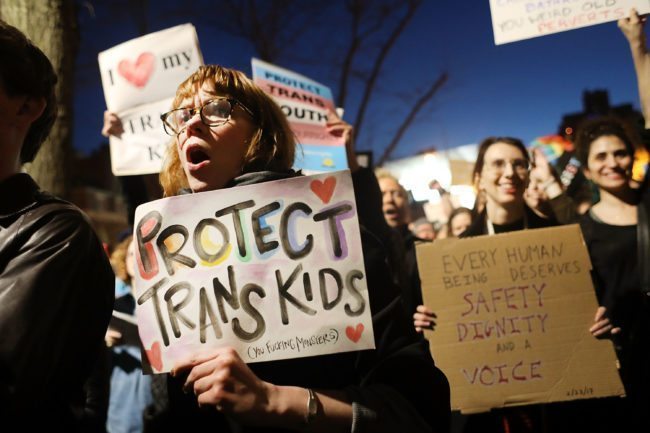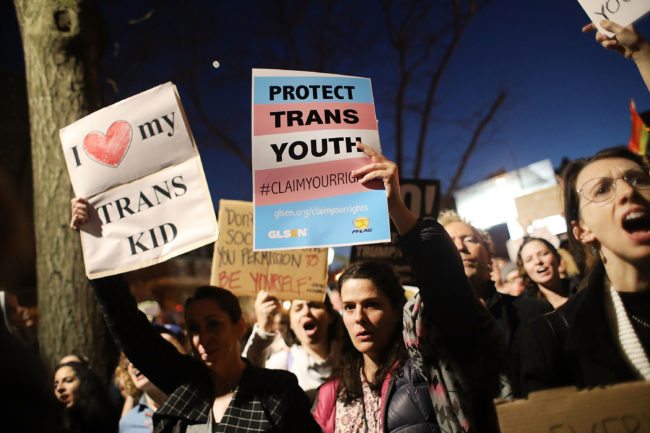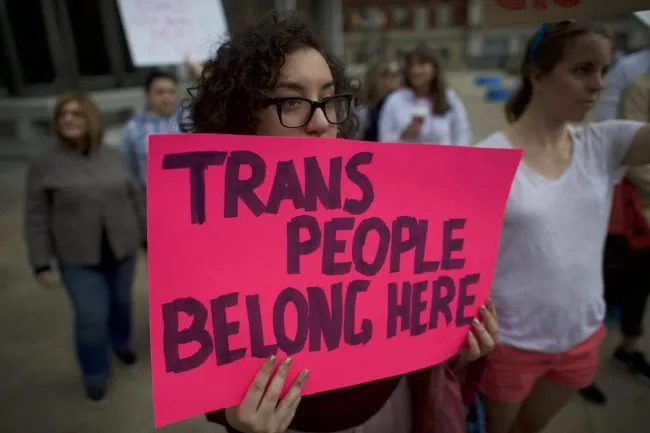Transgender youths who use their chosen name are 65 percent less likely to attempt suicide, research reveals

(Pexels)
Allowing young transgender people to use their chosen name drastically reduces the likelihood they will attempt suicide, suffer depression or have suicidal thoughts, new research has found.
The study, published in the Journal of Adolescent Health, discovered that this simple act made a huge difference to the trans people they interviewed, who were between the ages of 15 and 21.
Researchers asked if these teenagers and young adults could use their chosen name at school, work, home and with friends.

(Photo by Spencer Platt/Getty Images)
When compared with trans youths who weren’t able to use their real names in any situation, respondents who could go by their chosen name anywhere experienced 71 percent fewer symptoms of severe depression.
They also reported 34 percent fewer thoughts of suicide, and – perhaps most notably – a 65 percent decrease in suicide attempts.
The researchers, led by a team at The University of Texas at Austin, conducted the study of 129 trans youths across the country ahead of yesterday’s Transgender Day of Visibility.

(Getty)
Around two-thirds had been bullied, and more than four in five had self-harmed.
Study author Stephen T. Russell, professor and chair of human development and family science, said: “Many kids who are transgender have chosen a name that is different than the one that they were given at birth.
“We showed that the more contexts or settings where they were able to use their preferred name, the stronger their mental health was.”

(Pexels)
Russell expected to find a connection between whether trans youths could use their chosen name and their mental health, but still, he was shocked by his results.
“I’ve been doing research on LGBT youth for almost 20 years now, and even I was surprised by how clear that link was,” he said.
Russell added: “It’s practical to support young people in using the name that they choose.

(Pexels)
“It’s respectful and developmentally appropriate.”
In 2016, research showed that 40 percent of transgender people have attempted suicide.
And last year, a study of more than 3,700 LGBT pupils across the UK found that nearly half of trans schoolchildren had attempted suicide.

(Photo by Mark Makela/Getty Images)
Earlier this year, Sarah McBride, press secretary of the Human Rights Campaign, spoke out about the importance of embracing transgender children, saying that a family’s acceptance can be the difference between life and death.
She said: “I remember when a mom of a transgender daughter said: ‘When my child came out, I was faced with a decision — whether I wanted a happy daughter or a dead son.’”

